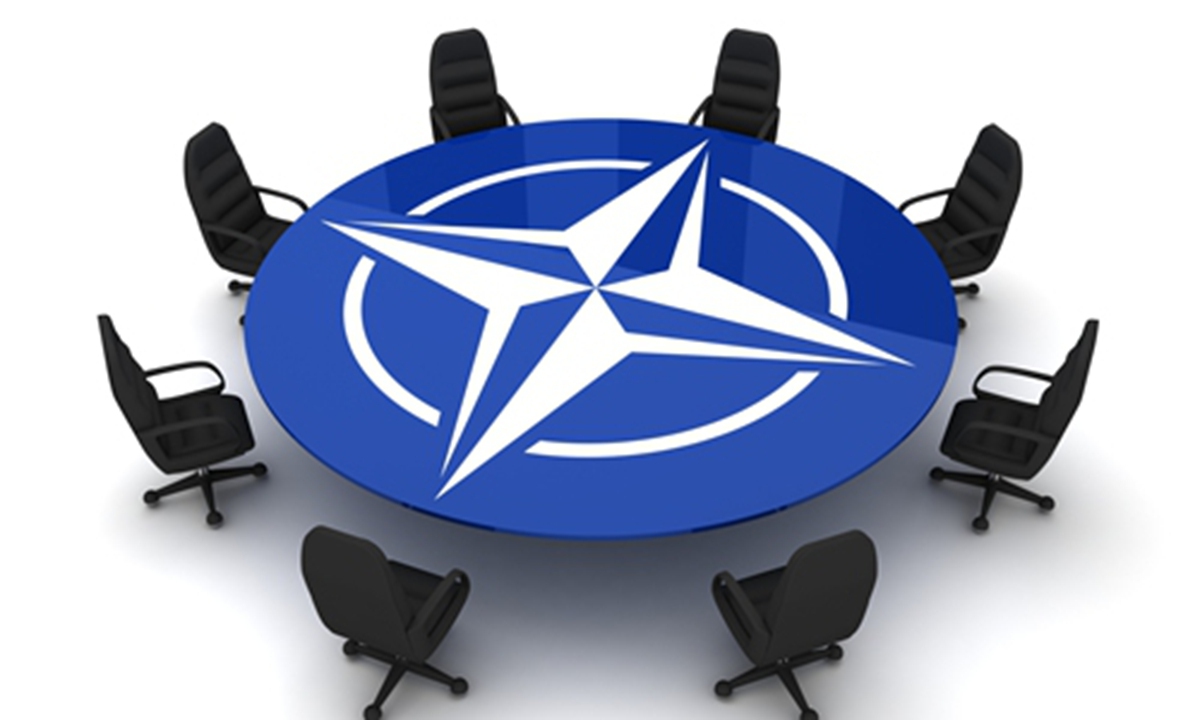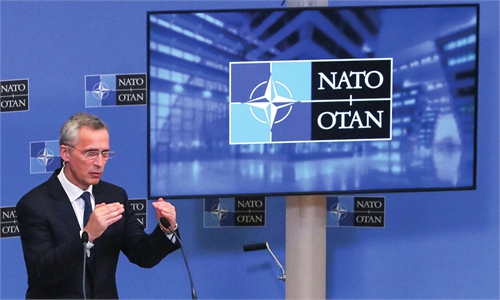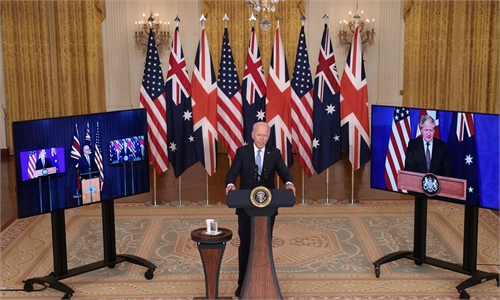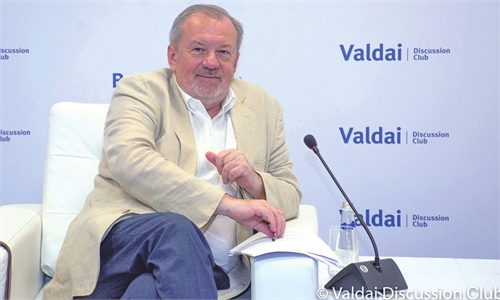
Photo: IC
Worries about the risk of war in Ukraine have led to negotiations between Russia and the West, including the US, NATO, and the Organization for Security and Co-operation in Europe. The latest round of US-Russia security talks proves that the US is neither prepared nor able to mount an assertive diplomatic offensive toward Russia. But the two sides seem to have reached some consensus on the need to "cool down" the situation in Ukraine. This made NATO, which held a meeting with Russia on Wednesday, somewhat embarrassed.As a buffer between the West and Russia, Ukraine is a decisive factor in the geopolitical game between Russia and the West. It is the main geopolitical defense for Russia if it turns East, and a strategic high ground for the West to suppress Russia if it turns West. Therefore, the Ukrainian crisis and the solution to it demonstrate the game between Russia and the West.
The Biden administration has made a gesture of providing security protection for Europe. Regarding Russia, the US has been engaging in the bilateral strategic stability dialogue to make "nonfatal" rules in the game between the two countries. At the same time, the US encourages NATO and Ukraine to cooperate closely, especially around the Black Sea (in other words, NATO's eastern flank), to strengthen the strategic offensive against Russia.
The solution to the Ukraine problem under the leadership of Washington is to use NATO to launch an offensive against Russia. This essentially deviates from the European approach that focuses more on diplomatic negotiations and interest exchange. Therefore, the situation in Ukraine will shift rapidly toward military confrontation.
The latest round of US-Russia talks was followed by a meeting between NATO and Russia. Even though no substantial progress will be made during the latter event, both sides may still get what they want. Russia could try to obtain favorable bargaining chips in the negotiations by threatening to end engagement with NATO at any time. As for NATO, it may regard the negotiations as a result of being tough on Russia and forcing it to restart dialogue. In this way, NATO can prove that it still has a role to play in Europe-Russia relations and European security.
However, after gaining limited "political results," NATO needs to face an embarrassing reality: After Russia and the US signaled a consensus on cooling down the Ukraine situation during their talks, will the value of NATO to the US be greatly reduced? If in subsequent negotiations Russia insists that NATO suspend cooperation with Ukraine and stop eastward expansion, how can NATO prove its "value" to the US by emphasizing its "obligations" to Ukraine?
The US and NATO view Ukraine as a partner but did not grant it NATO membership. In this way, they want to gain an upper hand in their game with Russia. They could not only stir up the regional situation by providing Ukraine with military equipment and holding joint military exercises, but also use "Ukraine is not a NATO member" as an excuse to avoid open confrontation with Russia.
But Russia has already seen through such tricks by the US and NATO. Therefore, Moscow is forcing NATO to clarify its relationship with Ukraine amid the escalation of military confrontation to avoid strategic consumption. If NATO cannot stop this round of strategic and diplomatic counter-offensives from Russia, all the "achievements" it gained from squeezing Russia's room on both the eastern and western fronts will vanish.
The Ukraine crisis and the US-Russia interaction have made Europe uncomfortable and anxious. In order to take its fate into its own hands, Europe should put strategic autonomy into real practice. It should make up its mind to "prioritize European solutions to European problems." The price for relying on others is vulnerability to others' influence.
To resolve the Ukraine issue, it's necessary for Europe to make the relevant parties rebuild confidence in the Normandy format. When it comes to relations with Russia, it's necessary to promote de-escalation through dialogues as France and Germany suggested, and promote bilateral relations to a state of stability. Regarding issues that concern its own security, NATO should influence and constrain the US through the US-Europe bilateral mechanism and the NATO framework instead of becoming a chess piece to be sacrificed by the US.
The author is director of the Department of European Studies, China Institute of International Studies. opinion@globaltimes.com.cn



